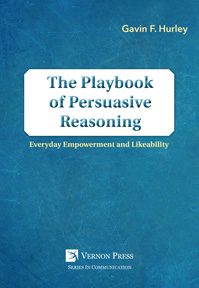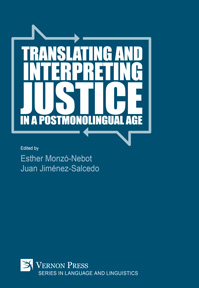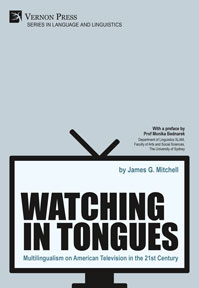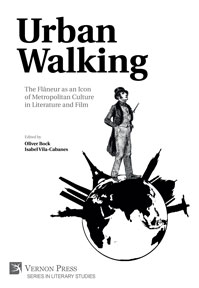Remaking a Global Cantonese Community with Television and Social Media
by Simin Li (University of Victoria)
Purchase this book
(click here to change currency)
Simin Li’s new book is a fascinating study of Cantonese popular media and identity politics in the age of Xi Jinping. Ranging over a mix of broadcast television shows and online discussion forums dedicated to discussion of language and dialect, Li presents a portrait of a still-vibrant Cantonese media landscape under serious pressure from Beijing’s Mandarin-first policies. In addition to offering media-studies analysis of these media texts themselves, Li adds significant value by including candid interviews with a number of content creators who agreed to go on the record for this book. In addition to being a valuable snapshot of contemporary Cantonese identity, “Remaking a Global Cantonese Community with Television and Social Media” will also be of interest to a broad range of scholars interested in the interaction of media and language politics.
Dr. Daniel Fried
Department of East Asian Studies
University of Alberta
"Remaking a Global Cantonese Community with Television and Social Media," despite its short length, is definitely a landmark and timely scholarly work. It not only addresses the histories of the Cantonese-speaking communities and identity politics, but also draws our attention to the diversity and complexity of Chinese languages. Based on a wealth of case studies with nuanced and balanced analysis and arguments, the book inspires us to re-examine the contested domains of cultural politics in contemporary China. It serves as a critique of the dominance of official language and a reminder of the liveliness and agency of local languages.
Professor Iam-chong Ip
Institute of Social Research and Cultural Studies
National Yang Ming Chiao Tung University, Taiwan
Cantonese (Jyut Jyu) is a language prevailing in the Guangdong province of China, Hong Kong, Macau, and ethnic Chinese groups in Southeast Asia and North America. It evolves with the engagements of the authoritarian government and globalization over time. Cantonese in China is special because it remains strong under the constant suppression from the administration and the continual interactions between the natives and migrants. However, the concern about Cantonese dying among the natives has been increasing in recent years. The speaking population, the imposed language policy, and the economy at least determine Cantonese’s life. In particular, the economy is also a window to examine the central-local relations in China due to the leading roles of the Pearl River Delta, Hong Kong, and Macau in China’s economic growth. Therefore, the struggles of local language between the younger generation and the Communist Party via the Internet are exposed. The book intends to explore the rising of a potential language community around the globe that speaks Cantonese by analyzing the usage and images of Cantonese of a popular TV show on YouTube, discussion groups on Baidu Tieba and Facebook, and talk shows on Bilibili with content analysis, interviews, and cases studies. Through this research, the relations between language and collective identity will be presented in an innovative way.
"Remaking a Global Cantonese Community with Television and Social Media" has something to offer everyone, regardless of age or background. For those residing in mainland China, it’s a journey back in time. Older Cantonese speakers will reminisce about their childhood, with memories of delicious Cantonese food, playful children’s songs, and cherished customs. Even those who aren’t native Cantonese speakers will recall the Cantonese TV shows, movies, and music that colored their youth. Younger readers will find familiar elements in the short videos they currently enjoy. For language preservation advocates, this book sheds light on Cantonese speakers’ efforts to protect their native language and the challenges they face. For readers outside of mainland China, it offers insights into the country’s internal changing landscape, especially grassroots practices and identities. By blending the disciplines of linguistics, political science, and communication, this book provides a broad perspective on how language is intertwined with our sense of belonging.
List of Figures
List of Tables
Foreword by Nigel Murphy
Preface
Introduction
Chapter 1 History and Government Policies of Cantonese and Mandarin
Chapter 2 Dominant Cantonese and Diverse Dialects in Guangdong
Chapter 3 The Image of Cantonese People and The Censorship Online
Chapter 4 Civil Practices for Cantonese Prospect
Limitation and Conclusion
References
Appendix
Index
Simin Li, Cantonese, writer, educator, and researcher. She got her bachelor’s degrees in Journalism and Education in China, a master’s degree in Library and Information Studies in Taiwan and another in Political Science in Canada. Her research interests include international relations of the Asia-Pacific region, identity and neo-nationalism of ethnic Chinese, and elite studies in digital humanities. She published her first academic book “Discourses of Asian Societies: Cases from China, Hong Kong, and Taiwan” in 2019.
Cantonese, Identity, Online Media, Globalization
Subjects
Language and Linguistics
Communication and Journalism
Series
Series in Language and Linguistics
Related services
Find in a library near you Download HQ cover Find in Bookshop.orgSee also
Bibliographic Information
Book Title
Remaking a Global Cantonese Community with Television and Social Media
ISBN
979-8-8819-0016-8
Edition
1st
Number of pages
128
Physical size
236mm x 160mm

![Remaking a Global Cantonese Community with Television and Social Media [Paperback]](/file/23613/bfb982ecb73462864e4806d9f5279a46/1711401988.jpg)





